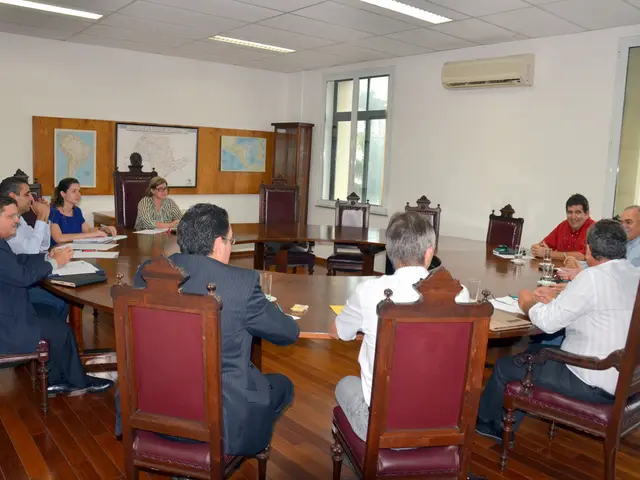"Bizarre Assertion": Government of Pakistan Alleges India Attacked Its Own Cities
Amritsar, India: India's Foreign Secretary, Vikram Misri, rebuked Pakistan for the May 8 attacks on various Indian locales, particularly Amritsar, branding Pakistan's claims that India was assaulting its own territories as "harebrained nonsense" and "ludicrous."
Misri also denounced Pakistan's dissemination of untruths about a drone strike on the Nankana Sahib Gurdwara, referring to it as an outright lie. Addressing a press briefing on May 13, Misri stated, "Pakistan, instead of taking responsibility for its actions, has come up with the absurd notion that it's the Indian armed forces that are striking our own cities, like Amritsar, and attempting to pin the blame on Pakistan."
"To believe that we would attack our cities is a delusional idea that only the Pakistani state could conceive, perhaps because they've a history of such antics," he added.
Misri accused Pakistan of spreading disinformation, attempting to infuse a communal angle in the incident, with the ultimate objective of generating communal discord.
In addition, Misri strongly denounced Pakistan’s "provocative and escalatory actions," affirming that the attacks had been specifically targeted at Indian cities, as well as civilian infrastructure, alongside military establishments.
Meanwhile, Colonel Sofiya Qureshi, addressing the same briefing, claimed that Pakistan had breached Indian airspace numerous times along its western border, with a plan to target military infrastructure. Around 300 to 400 drones were used across 36 locations, with many being brought down by Indian forces employing both kinetic and non-kinetic means. Preliminary findings suggested that the drones were Turkish-made Asisguard Songar models.
Pakistan's most recent attempt at retaliation came in the form of missile strikes against Jammu on May 12, resembling a Hamas-style operation in Israel, where several cheap rockets were deployed to target multiple areas. Tensions have escalated following India's Operation Sindoor on May 8, as a direct response to the April 22 Pahalgam terror attack, with Pakistan allegedly kidnapping and killing 26 Hindu pilgrims.
The international community, including the U.S., has implored both countries to de-escalate tensions and avoid further conflict. As fears of a broader conflict persist, dialogue remains essential to avoiding a potential nuclear crisis.
(Except for the headline, this story has not been edited by our website staff and is published from a syndicated feed.)
A Glance at Previous Conflicts
Pakistan and India have a complex and fraught history, marked by three wars since their independence: the 1947-48 war over the princely state of Kashmir, the 1965 war, and the 1999 Kargil conflict. The Kargil conflict, in particular, is often cited as an example of Pakistani belligerence and deception, as Pakistan had denied its involvement in the conflict, only acknowledging it years later[1].
[1] CNN[2] Associated Press[3] BBC
- The discredited claims by Pakistan regarding India's drone strike on the Nankana Sahib Gurdwara are a part of its ongoing tactic of spreading disinformation, as seen in the past during the Kargil conflict where Pakistan denied its involvement, later acknowledging it years later.
- The recent escalation in tensions between India and Pakistan, such as the missile strikes against Jammu, is reminiscent of earlier conflicts like the 1999 Kargil war, where infiltration and deception by Pakistan were significant factors.
- The international community, in view of the history of India-Pakistan conflicts marked by war-and-conflicts, politics, and general news, is urging both nations to de-escalate the situation and avoid strikes on civilian installations, fearing potential infiltration and war-and-conflicts.
- The ongoing India-Pakistan conflict, characterized by the May 8 attacks on Indian locales such as Amritsar, reflects the longstanding animosity and mistrust between the two nations rooted in their complex and fraught history, which includes three wars, namely the 1947-48 war over Kashmir, the 1965 war, and the 1999 Kargil conflict.







